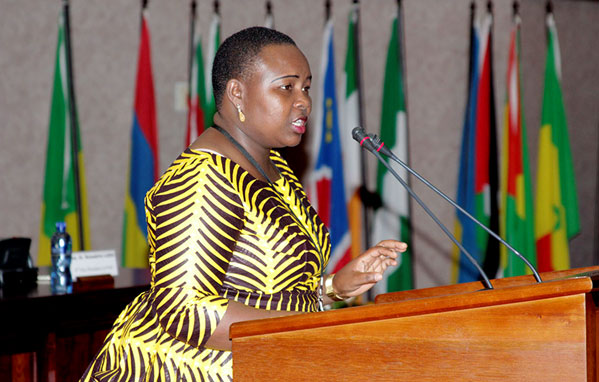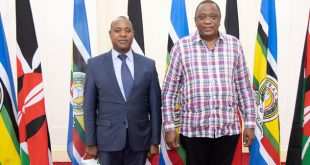
MIDRAND, SOUTH AFRICA: The Sustainable Development Goals (SDGs) that were rolled out by the UN are not well tuned to Africa’s development challenges, MPs of the Pan African Parliament have said.
The United Nations General Assembly adopted in September 2015 a set of goals to end poverty, protect the planet, and ensure prosperity for all as part of a new sustainable development agenda with specific targets to be achieved by 2030.
But PAP MPs argue that it is a tall order for Africa to achieve the set targets given her unique challenges like poor infrastructure, low technology and neocolonialism that have failed Africa from exploiting her abundant resources.
Because of the above challenges, the MPs said it was a hard task for Africa to eliminate poverty, maternal mortality, and universal education in the timeframe set by the UN.
“The very people who set these goals are exploiting our resources, they are the very ones destroying our environment and arming rebels and resistance movements in Africa,” said Mohammed Mubarak Muntaka from Ghana adding “Let’s wake up and do things our own way because that is the only way we shall be able to achieve real development and progress.”
The legislators were responding to a report of the Brainstorming Session on SDGs, the Role of Parliaments, which was presented by Uganda’s Jacquiline Amongin to PAP members on Wednesday.
The objective of the brainstorming session was to update parliamentarians on the progress made in achieving the SDGs by African countries and discuss the expected roles of parliamentarians in monitoring the SDGs.
Some legislators argued that the Millennium Development Goals, 8 goals and 18 targets had not been achieved and that the new SDGs, 17 goals and 169 targets, were unrealistic. They also reasoned that with the existence of many development plans such as the African Peer Review Mechanism (APRM) and Agenda 2063, and their associated challenges of implementation, it becomes difficult for Africa to adopt and implement the new SDGs.
Billow Kerrow (Kenya) said that even as members digest the 169 targets, they should not forget their own roadmap for development, the African Union Agenda 2063.
Jacquiline Amongin challenged parliamentarians who are cynical about the aspirations of the SDGs saying if the targets are many, Africa should look at those it can embrace.
“Let’s not downplay the SDGs. Our member states participated and signed to these global goals. We should not run away from what we are mandated to do, such as, setting priorities and exercising oversight,” she said. “We have a role to play to monitor domestication of these protocols that our member states have committed to. The SDGs are in line with the Agenda 2063 of the AU.”
Agenda 2063 is a strategic framework for the socio-economic transformation of Africa over the next 50 years. It builds on past and existing continental initiatives for growth and sustainable development and on national, regional, continental best practices.
Its proponents argue that, unlike the SDGs, it is a continental agenda for socio-economic transformation driven by the voices of the African people indicating the Africa they want.
Some of the aspirations of agenda 2063 include “a prosperous Africa, based on inclusive growth and sustainable development; an integrated continent, politically united, based on the ideals of Pan Africanism and the vision of Africa’s Renaissance; and an Africa of good governance, democracy, respect for human rights, justice and the rule of law.”
In showcasing the status of implementation of the SDGs in Uganda, Anifa Kawooya, informed the continental legislature that the Government of Uganda had already institutionalized gender and equity budgeting through its Public Finance Management Act.
She noted that women are key drivers in the realisation of the SDGs and that parliaments should play a big role to harness the empowerment of women so as to accelerate gender and equity in line with SDG Goal 5.
Bernadette Lahai (Sierra Leone) said Africa has a lot of refuges and internally displaced persons as a result of displacement and that whether it is the SDGs or Paris Agreement, Africa has to take its own responsibility.
“We cannot relegate our poverty to externalities. It is not external people saying we cannot agree on gender equality. FGM is not external,” she said. “Let us own up to what we are responsible for and that which we are not responsible, work with external people to have it addressed.”
Despite the heated debate on the subject, the legislators endorsed the proposal to establish a sub committee on the SDGs to periodically review the status of SDG domestication and localisation at the national, regional and continental level.
The Pan African Parliament is meeting in Midrand, South Africa May 8th -19th 2017.
 The Independent Uganda: You get the Truth we Pay the Price
The Independent Uganda: You get the Truth we Pay the Price



